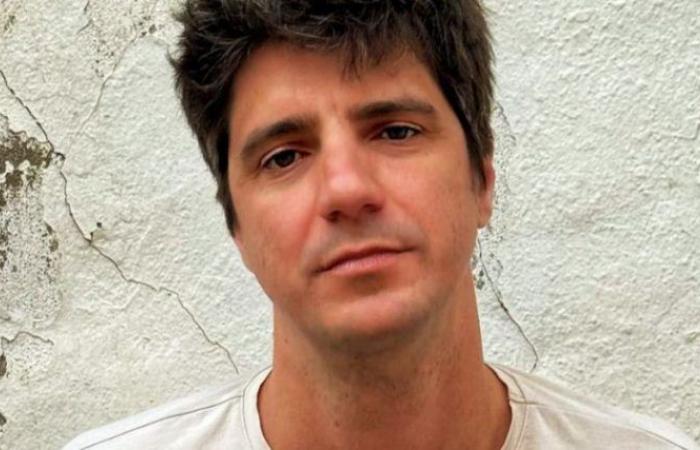Second prize It’s a damn movie with a happy ending. I don’t know how many cases like this there will be. It is a masterpiece of Spanish cinema that has been able to see the light thanks to the love of its creators. Various directors, pain and death. A rocky position by the group. Second prize I had everything for it to go wrong. But sometimes things work out well. Life is so.
Second prize It is a film surrounded by mystery, darkness and pain. Also about lysergy, magic and mystery. The Planets, Granada, New York. Art and stories will continue to be created around the film. A first example is Low level: “This is not a book about the Los Planetas movie. Nor is it a book about the legend of the group. This diary cuts out a life, a filming, that aspires to create a world from those days,” says Alejandro Simón, author of the work. Throughout the pages, the atmosphere that surrounded the recording of Second prize. Pleasure, pain, love, humor, tragedy and life. The author was putting his obsessions on paper during the filming of the film. At the end, that intimate story had to see the light.
Question (P): This is not a book about Second prize and Second prize It is not a movie about The Planets.
Answer (R): It is not a coincidence but a decision by the people who have been involved in both the film and the book. Both parties wanted to base it on a story and create a parallel universe. Second prize part from the history of The Planets and Low level since the filming of Second prize. They are projects that serve as a tribute, but also as a personal and own discovery.
Q: If it hadn’t been The Planets, Second prize Maybe it would have been a movie about the group and your book about the filming of the movie.
A: Possibly yes. And it is logical because it is difficult to find a group with that legacy, that trajectory and that commitment that Los Planetas have with themselves. The requirement is not capricious.
Living in Granada in spring and feeling its routine healed me
Q: Were you a fan of The Planets?
A: Listener yes, but fan no. Now I am. Her last two albums, The Songs of Water and Temporarily Autonomous Zonebroaden their career and legendary works such as I surpass eight either A Week in the Engine of a Bus.
Q: In the book you talk about what a Los Planetas fan is like. In fact, you reflect on the role of the film’s producer, Cristóbal García, and affirm that the film succeeds because of his fundamentalism as a fan and his brittle but unbribable faith.
A: The original idea of Jonás Trueba and Cristóbal García is based on admiration for the group and a feeling as beautiful as innocence. The primary meaning of this project is to pay tribute to a music that has been vital in his sentimental and emotional education. The beautiful thing about art is paying tribute and being grateful. In fact, gratitude is one of the fundamental bases of creation.
Q: Have the members of Los Planetas been fair to the film?
A: I understand their decision to be picky about what was going to develop around their name. They are people who have dedicated their life, soul and heart to a project. You have to understand and tolerate their demands. Also its vulnerabilities. Many times we are permissive with those who are primitive and demanding with those who are great. We must make the effort to accept demands from such extraordinary people. I didn’t want to get too involved in the relationship between the film and the group, but I understand that both parties had a great emotional involvement. Faced with these types of strong feelings, there is always unity but also friction.
Q: I imagine Jota watching the movie and enjoying it in silence.
A: Surely yes because I know he celebrated it. Furthermore, it would seem clumsy to me if you did not value the generosity and effort that a group of people have had for their project.
Q: Do you know if they have read the book?
A: I wrote to Jota to give it to him, but I have not been able to go to Granada. The times we have met I have had a great time because he is a person with a unique magnetic ability to make the people around him feel protected. I know he’s not going to come forward, but I would like him to like the book. I don’t care either because it is an elegant posture, as well as mysterious. Like any good Granaíno, Jota has that halo of Lorca mystery. Being in the shadows provides mystery. Saints inhabit the shadows and the most valuable people, too.
I did not feel legitimate to do a monograph on The Planets
Q: Have you ever wondered what you were painting in that project?
A: I keep wondering. Even now, with the promotion of the book, I feel like I am selling the furniture of a house that is not mine. Furthermore, I didn’t want to make a technical and cinematographic diary. I wanted a diary in which the improbable was part of reality. With all the problems that the filming has had, I have felt that I should not be part of it. Therefore, I became an external witness, but not an outsider. Neither present nor absent from the film. With enough distance to see everything in perspective. The diaries are always written with the vision of death present because it is a constant exhaustion of day to day.
Q: You quote the following phrase by Julio Ramón Ribeyro: “Every intimate diary is born from a deep feeling of loneliness.” Did you force yourself to seek solitude or is it an inherent element in you?
A: It’s something contradictory. I am a sociable person, but I have a deep-rooted feeling of loneliness. I don’t like it, I don’t need it, but it’s there. I have always known that the diary was an assignment, although while I was writing it, I had the feeling that it would never leave my drawer. I wrote every day without thinking about the impact or reach. I just wanted the days to dictate the words and not impose my story. I do not feel legitimate to write a monograph on The Planets nor do I know enough about cinema to write a technical diary. The only thing I could do was provide the routine vision of a city like Granada in which an important film was being filmed. Second prize It is a film that will last and make a mark in people’s hearts. Just as the film is a parallel universe to The Planets, the book is also parallel to the film.
Q: How do you feel when you see that those feelings have come out of the drawer?
A: I try not to think about it because it is inevitable. I have made the book I needed to make and I don’t think any further. It could have been closer to the movie or delved deeper into the relationship with the group. But it is the book that my time in Granada has dictated to me and I had to be faithful to it.
Q: It is also a diary marked by pain. You talk about the death of your father, the cancer of a friend and the leukemia of Isaki Lacuesta’s daughter, who ended up passing away.
A: I hesitated with the topic of grief in case I was repeating myself. I had just taken out The plot, a novel in which I talk about the loss of my father and the heartbreak that something like that produces. In Low level This feeling has appeared again because a diary is nothing more than an inner listening. The unhealed rage is still inside and continues to fester.
Q: What have you learned from journaling?
A: It has helped me many things. For example, I have confirmed the importance and magnitude of artistic creation and how it serves to broaden the soul. I have seen again how miraculous it is for a group of people to come together to create something new. I have learned how much we must care for our creators. Sometimes, we are cynical and very hard on ourselves. But the work of creation and thought is the only thing that will project our lives towards the good. I have also realized that thank goodness I have not dedicated myself to cinema. If the life of poetry is hard, that of cinema is neurotic. However, due to my decision not to participate in the filming, I was not able to fulfill my initial idea, which was to know how a film is made.
Q: You had to live in Granada and New York. What have both cities meant to you?
A: It was curious because my stay in New York was scheduled to coincide with the filming. However, it ended up being positive that it wasn’t like that. The memory of New York is also confusing since I was mostly lost in the city and experiencing its night. New York also gave me the perspective of knowing Lorca’s steps and what the locations of the film were going to be. The fact of starting there was more literary than necessary. It’s nice that the movie ended in the same place where the diary begins. On the other hand, Granada offered me its mystery. Living in the city in spring and feeling its routine healed me. They have been months of true happiness surrounded by all the human involvement that has occurred around the project. After the illness of Isaki’s daughter, the team became a gypsy family that protected itself and moved forward. Granada and New York are two cities that, with their differences, could be twinned by their capacity for the ineffable. Both address the other half of what is visible and inhabit the shadows.
Follow us on Whatsapp and receive the featured news and the most interesting stories






